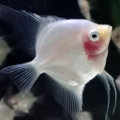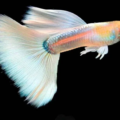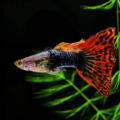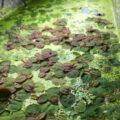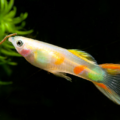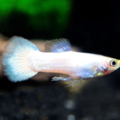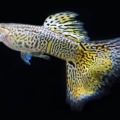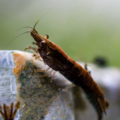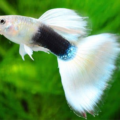Guppies, with their bright colors and beautiful patterns, can liven up just about any aquarium. If you’re considering adding guppies to your aquatic family, you may be wondering if they are difficult to keep. The good news is that guppies are generally easy to care for and are widely available, making them a popular choice for both beginners and experienced fishkeepers alike.

The Basics of Guppies
What are Guppies?
Guppies are small, tropical freshwater fish that belong to the Poeciliidae family. They are native to the freshwater streams and rivers of South America, particularly in countries like Venezuela, Guyana, and Brazil. Guppies are known for their vibrant colors, lively nature, and their ability to reproduce quickly.
See Also: The 20 Popular Types of Guppies for Your Aquarium to find out more on a variety of colorful guppy variations!
Natural Habits and Origin
In their natural habitat, guppies can be found in warm, heavily vegetated waters. They are adaptable fish and can thrive in various water conditions, which makes them a great choice for beginners. Guppies are known to be active swimmers, constantly exploring their environment.
Physical Characteristics
Guppies come in a wide range of colors, including vibrant reds, blues, and yellows. They also have different tail shapes, such as fan-shaped, round-shaped, and veil-shaped tails. The males are usually more colorful and have larger tails than females. These variations in color and tail shapes have been developed through selective breeding by fish enthusiasts over the years.
Guppy Care and Maintenance

Setting up the Aquarium
When setting up an aquarium for guppies, it’s important to provide them with enough space to swim and explore. A tank size of at least 10 gallons is recommended for a small group of guppies. You’ll also need proper filtration and a heater to maintain a stable water temperature, ideally between 72-82°F (22-28°C).
Water Parameters
Guppies prefer slightly alkaline water with a pH level between 7.0 and 8.0. It’s important to monitor the ammonia, nitrite, and nitrate levels regularly to ensure a healthy environment for your guppies. Performing regular water changes is also essential in maintaining good water quality.
Suitable Tank Mates
Guppies are generally peaceful fish and can coexist with a variety of other community fish. However, it’s important to choose tank mates that are similar in size and temperament to prevent any aggression or stress. Some suitable tank mates for guppies include tetras, mollies, platies, and peaceful bottom-dwelling fish.
See Also: What Size Tank Do Guppies Need for tank size recommendations!
Feeding Guppies
Guppies are omnivores and have a hearty appetite. They can be fed a variety of foods, including high-quality flake or pellet food, as well as live or frozen foods such as brine shrimp or daphnia. It’s important to provide a balanced diet to ensure proper nutrition and growth.
Proper Cleaning and Maintenance
In order to maintain a healthy aquarium, regular cleaning and maintenance are necessary. This includes weekly partial water changes, gravel vacuuming, and cleaning the filter. Keeping the tank clean helps to prevent the accumulation of harmful bacteria and ensures the well-being of your guppies.
Common Challenges When Keeping Guppies

Many beginner aquarists purchase fancy guppies from a pet store, assuming they are easy to care for, only to find their fish died unexpectedly. Guppies are popular community fish, but they require stable tank water conditions to thrive.
Poor oxygen levels, unchecked ammonia levels, and improper acclimation can quickly lead to stress and disease. A planted tank helps regulate water quality and provides hiding spots to reduce stress. New fishkeepers should research guppy care to ensure their fish adapt well and avoid common pitfalls.
Understanding Other Challenges of Keeping Guppies
Investigating the Temperament of Guppies
Although guppies are generally peaceful, it’s important to note that there can be aggression within the species, especially among males. This is more common when there is limited space or when there are too many male guppies in one tank. Providing plenty of hiding spots and a balanced male-to-female ratio can help alleviate aggression.
Health Risks and Disease Prevention in Guppies
Guppies are hardy but still prone to illnesses like external parasites and infections. A female guppy is especially vulnerable during pregnancy due to increased stress. If a guppy that seemed healthy a month ago suddenly becomes inactive, it may indicate poor tank water conditions or an underlying disease.
While guppies are freshwater fish, some aquarists use mild salt water treatments to help combat parasites and infections. Monitoring oxygen levels, maintaining stable ammonia levels, and ensuring good nutrition are essential for keeping guppies disease-free.
Breeding Considerations
Guppies are prolific breeders, and if conditions are right, they can reproduce quickly. While breeding guppies can be a rewarding experience, it’s important to have a plan in place to manage the growing population. Providing separate breeding tanks or a dedicated breeding net can help control the number of fry (baby guppies).
Overcoming Difficulties in Guppy Care

Creating the Ideal Habitat
By understanding the specific needs of guppies and providing them with a suitable habitat, you can overcome any difficulties in their care. These include ensuring proper temperature, water quality, and plenty of hiding spots and plant coverage for both their mental and physical well-being.
Maintaining Water Quality
Adequate filtration, regular water changes, and maintaining proper water parameters are crucial in keeping guppies healthy. Testing the water regularly and addressing any issues promptly will help prevent common problems associated with poor water quality.
Successful Breeding Techniques
For those interested in breeding guppies, successful techniques involve providing separate breeding tanks or nets, ensuring water parameters are optimal, and introducing the fry to suitable environments to ensure their survival.
Creating the Ideal Guppy Environment

A well-maintained guppy aquarium provides all the good stuff necessary for them to thrive. A planted tank improves oxygen levels, helps filter excess waste, and creates a natural habitat. Guppies make great comunity fish, but choosing the right tank mates is crucial for reducing stress.
Regularly testing tank water parameters ensures that both fancy guppies and female guppies remain healthy. Understanding the basics of guppy care, including proper feeding and preventing diseases, allows aquarists to successfully keep these vibrant fish long-term.
Conclusion
In conclusion, guppies are generally not difficult to keep, making them a great choice for both beginner and experienced aquarists. With proper care and attention to their specific needs, you can enjoy the vibrant colors and lively nature of these beautiful fish in your own home aquarium. Remember to provide them with suitable tank conditions, a balanced diet, and regular maintenance to ensure their well-being and overall health.

